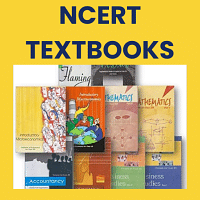Commerce Exam > Commerce Questions > Science, not rule of thumb, this principle wa...
Start Learning for Free
Science, not rule of thumb, this principle was given by ____________
- a)James Lundy
- b)Henry Fayol
- c)Koontz
- d)F.W.Taylor
Correct answer is option 'D'. Can you explain this answer?
| FREE This question is part of | Download PDF Attempt this Test |
Most Upvoted Answer
Science, not rule of thumb, this principle was given by ____________a)...
Answer:
Introduction:
The principle of "Science, not rule of thumb" was given by F.W. Taylor, also known as Frederick Winslow Taylor. He was an American mechanical engineer and management consultant, often referred to as the "Father of Scientific Management." Taylor's work focused on improving efficiency and productivity in industrial settings through the application of scientific principles.
Explanation:
The principle of "Science, not rule of thumb" emphasizes the importance of basing decisions and actions on scientific analysis and data rather than relying on personal opinions or traditional practices. Taylor believed that by using scientific methods and careful observation, it was possible to identify the most efficient and effective ways of performing tasks and managing work processes.
Key Points:
Here are some key points to understand the principle of "Science, not rule of thumb":
1. Scientific Approach: Taylor advocated for a scientific approach to management, which involved analyzing work processes, measuring performance, and identifying the most effective methods of performing tasks.
2. Elimination of Guesswork: The principle of "Science, not rule of thumb" aimed to eliminate guesswork and subjective decision-making by relying on scientific analysis and objective data.
3. Standardization: Taylor emphasized the need for standardization of work processes and the development of standardized methods and procedures. This allowed for consistency and efficiency in performing tasks.
4. Time and Motion Studies: Taylor introduced the concept of time and motion studies, where he carefully observed and analyzed workers' movements to identify unnecessary or inefficient actions. This led to the development of optimized work methods.
5. Training and Development: Taylor believed that workers should be trained in the best methods of performing their tasks and that supervisors should provide clear instructions and guidance based on scientific analysis.
6. Incentives and Rewards: Taylor also emphasized the importance of providing appropriate incentives and rewards to motivate workers and encourage them to perform at their best. This was based on the scientific analysis of performance and productivity.
Conclusion:
The principle of "Science, not rule of thumb" highlights the importance of using scientific methods and analysis to make informed decisions and improve work processes. F.W. Taylor's contributions to scientific management revolutionized the field of industrial efficiency and productivity, and his principles continue to be relevant in modern management practices.
Introduction:
The principle of "Science, not rule of thumb" was given by F.W. Taylor, also known as Frederick Winslow Taylor. He was an American mechanical engineer and management consultant, often referred to as the "Father of Scientific Management." Taylor's work focused on improving efficiency and productivity in industrial settings through the application of scientific principles.
Explanation:
The principle of "Science, not rule of thumb" emphasizes the importance of basing decisions and actions on scientific analysis and data rather than relying on personal opinions or traditional practices. Taylor believed that by using scientific methods and careful observation, it was possible to identify the most efficient and effective ways of performing tasks and managing work processes.
Key Points:
Here are some key points to understand the principle of "Science, not rule of thumb":
1. Scientific Approach: Taylor advocated for a scientific approach to management, which involved analyzing work processes, measuring performance, and identifying the most effective methods of performing tasks.
2. Elimination of Guesswork: The principle of "Science, not rule of thumb" aimed to eliminate guesswork and subjective decision-making by relying on scientific analysis and objective data.
3. Standardization: Taylor emphasized the need for standardization of work processes and the development of standardized methods and procedures. This allowed for consistency and efficiency in performing tasks.
4. Time and Motion Studies: Taylor introduced the concept of time and motion studies, where he carefully observed and analyzed workers' movements to identify unnecessary or inefficient actions. This led to the development of optimized work methods.
5. Training and Development: Taylor believed that workers should be trained in the best methods of performing their tasks and that supervisors should provide clear instructions and guidance based on scientific analysis.
6. Incentives and Rewards: Taylor also emphasized the importance of providing appropriate incentives and rewards to motivate workers and encourage them to perform at their best. This was based on the scientific analysis of performance and productivity.
Conclusion:
The principle of "Science, not rule of thumb" highlights the importance of using scientific methods and analysis to make informed decisions and improve work processes. F.W. Taylor's contributions to scientific management revolutionized the field of industrial efficiency and productivity, and his principles continue to be relevant in modern management practices.
Free Test
FREE
| Start Free Test |
Community Answer
Science, not rule of thumb, this principle was given by ____________a)...
F. W. TAYLOR. As he is known as the father of Scientific Management.
Attention Commerce Students!
To make sure you are not studying endlessly, EduRev has designed Commerce study material, with Structured Courses, Videos, & Test Series. Plus get personalized analysis, doubt solving and improvement plans to achieve a great score in Commerce.

|
Explore Courses for Commerce exam
|

|
Science, not rule of thumb, this principle was given by ____________a)James Lundyb)Henry Fayolc)Koontzd)F.W.TaylorCorrect answer is option 'D'. Can you explain this answer?
Question Description
Science, not rule of thumb, this principle was given by ____________a)James Lundyb)Henry Fayolc)Koontzd)F.W.TaylorCorrect answer is option 'D'. Can you explain this answer? for Commerce 2024 is part of Commerce preparation. The Question and answers have been prepared according to the Commerce exam syllabus. Information about Science, not rule of thumb, this principle was given by ____________a)James Lundyb)Henry Fayolc)Koontzd)F.W.TaylorCorrect answer is option 'D'. Can you explain this answer? covers all topics & solutions for Commerce 2024 Exam. Find important definitions, questions, meanings, examples, exercises and tests below for Science, not rule of thumb, this principle was given by ____________a)James Lundyb)Henry Fayolc)Koontzd)F.W.TaylorCorrect answer is option 'D'. Can you explain this answer?.
Science, not rule of thumb, this principle was given by ____________a)James Lundyb)Henry Fayolc)Koontzd)F.W.TaylorCorrect answer is option 'D'. Can you explain this answer? for Commerce 2024 is part of Commerce preparation. The Question and answers have been prepared according to the Commerce exam syllabus. Information about Science, not rule of thumb, this principle was given by ____________a)James Lundyb)Henry Fayolc)Koontzd)F.W.TaylorCorrect answer is option 'D'. Can you explain this answer? covers all topics & solutions for Commerce 2024 Exam. Find important definitions, questions, meanings, examples, exercises and tests below for Science, not rule of thumb, this principle was given by ____________a)James Lundyb)Henry Fayolc)Koontzd)F.W.TaylorCorrect answer is option 'D'. Can you explain this answer?.
Solutions for Science, not rule of thumb, this principle was given by ____________a)James Lundyb)Henry Fayolc)Koontzd)F.W.TaylorCorrect answer is option 'D'. Can you explain this answer? in English & in Hindi are available as part of our courses for Commerce.
Download more important topics, notes, lectures and mock test series for Commerce Exam by signing up for free.
Here you can find the meaning of Science, not rule of thumb, this principle was given by ____________a)James Lundyb)Henry Fayolc)Koontzd)F.W.TaylorCorrect answer is option 'D'. Can you explain this answer? defined & explained in the simplest way possible. Besides giving the explanation of
Science, not rule of thumb, this principle was given by ____________a)James Lundyb)Henry Fayolc)Koontzd)F.W.TaylorCorrect answer is option 'D'. Can you explain this answer?, a detailed solution for Science, not rule of thumb, this principle was given by ____________a)James Lundyb)Henry Fayolc)Koontzd)F.W.TaylorCorrect answer is option 'D'. Can you explain this answer? has been provided alongside types of Science, not rule of thumb, this principle was given by ____________a)James Lundyb)Henry Fayolc)Koontzd)F.W.TaylorCorrect answer is option 'D'. Can you explain this answer? theory, EduRev gives you an
ample number of questions to practice Science, not rule of thumb, this principle was given by ____________a)James Lundyb)Henry Fayolc)Koontzd)F.W.TaylorCorrect answer is option 'D'. Can you explain this answer? tests, examples and also practice Commerce tests.

|
Explore Courses for Commerce exam
|

|
Suggested Free Tests
Signup for Free!
Signup to see your scores go up within 7 days! Learn & Practice with 1000+ FREE Notes, Videos & Tests.
























